My Oversubscribed Life
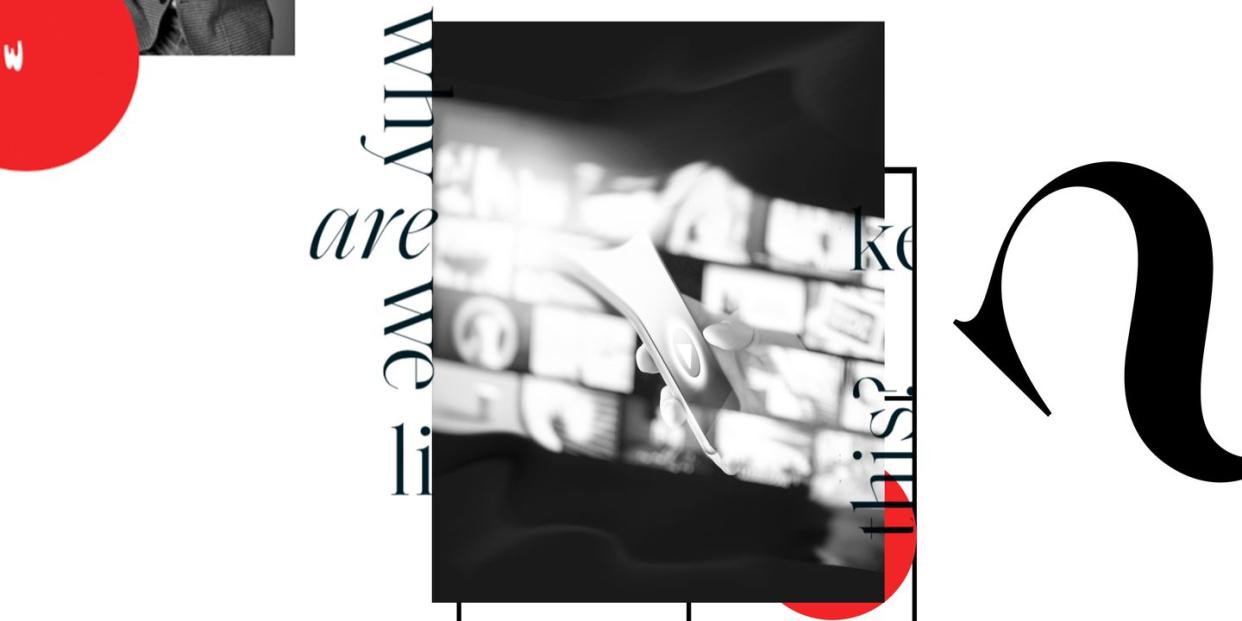
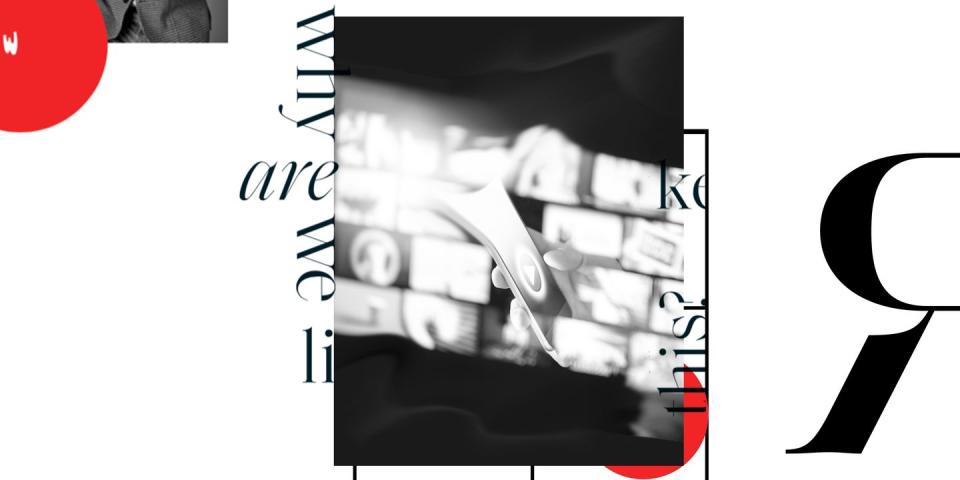
My zits didn’t show up with much esprit de corps until I was in my twenties, but in an effort to get ahead of embarrassment, my mom ordered Proactiv—the “easy three-step system that works for all ages and all skin types”—for my brother and me one lazy afternoon when we had the TV tuned to the infomercial channel. It was a whole ordeal. Someone over eighteen had to call a 1-800 number, and the phrase “check or money order” was involved. When the bottles arrived, I used the system once and got a rash in the shape of a beard around my jawline, an early but indelible lesson that anything describing itself as a “system” will come with some measure of pain. I never used it again, but orders that must have totaled five to six gallons of renewing cleanser, revitalizing toner, and repairing treatment continued to show up at our front door until I was well into college—to the immense frustration of my mom and the various customer-service representatives she enlisted in the effort to get the shipments to stop. My family moved out of that house ten years ago, but it wouldn’t surprise me to hear that those bottles are still amassing on the stoop.
You’d think I’d have learned my lesson, but on a heavy, wet summer evening fifteen years later I stared morosely into an after-work beer with a coworker and complained that I wasn’t in the mood to go to the grocery store. She suggested, as though we were in a commercial, that I try a meal-kit delivery service called HelloFresh. They send you all the ingredients in preapportioned little packets, along with recipes. It didn’t sound like my thing, but at the moment she suggested it, the edges of my life were feeling a little sharp, and I was eager for anything that might smooth them out. I signed up that night.
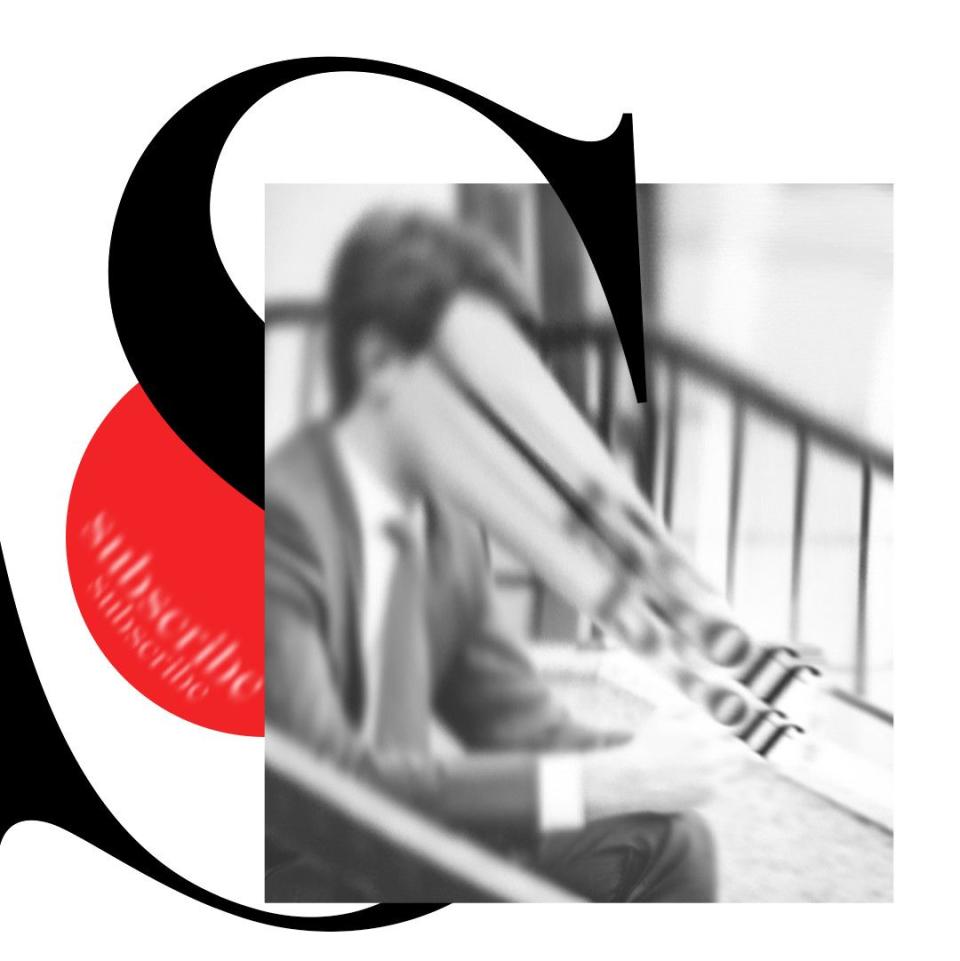
Around this time, Dermstore.com told me I could save 15 percent on sunscreen if I elected to receive the same tube in the mail every month. (This came out to a savings of around four bucks.) I coughed up a monthly fee for Spotify Premium. I signed up for a trial subscription to Hulu and learned that my insurance company would only cover my antianxiety prescription if I received it by mail. This, the promotional materials assured me, would be really good for me, because I wouldn’t have to go to the pharmacy anymore. For Christmas, I ordered my husband a recurring box of accessories that would arrive every month. (“It’s like a gift that doesn’t end,” I told him with crazy eyes on Christmas morning, the walls slowly closing in.) An HBO Now subscription followed, plus vitamins every thirty days. It was only a matter of time before I filled out a survey aimed at delivering “hyper-personalized” shampoo to my doorstep on a regular basis. For days after I hit “submit,” I wondered whether I’d accurately described the width of my part.
At night, I lay on my side with one eye open, scrolling through my feeds. If I wanted, I could shave and save on fancy blades with Billie, the Instagrammable sorbet-colored razors that would look really good against my shower tile and restock themselves the moment I ran out. I could begin each morning with a smoothie full of chia seeds, papaya, and avocado designed by the nutritionists at Daily Harvest, then brush my teeth with a Quip (free shipping for life!). On the subway into work, SmileDirectClub offered to fix the crowding of my upper incisors. Get started today! It would be so easy! You don’t even have to leave your apartment, Jet.com said. You know, said Feather, you don’t even have to commit to your couch; we’ll send you a new one every year. It’s that simple; it’s that light. It’s how New York eats, Seamless shrugged and told me.
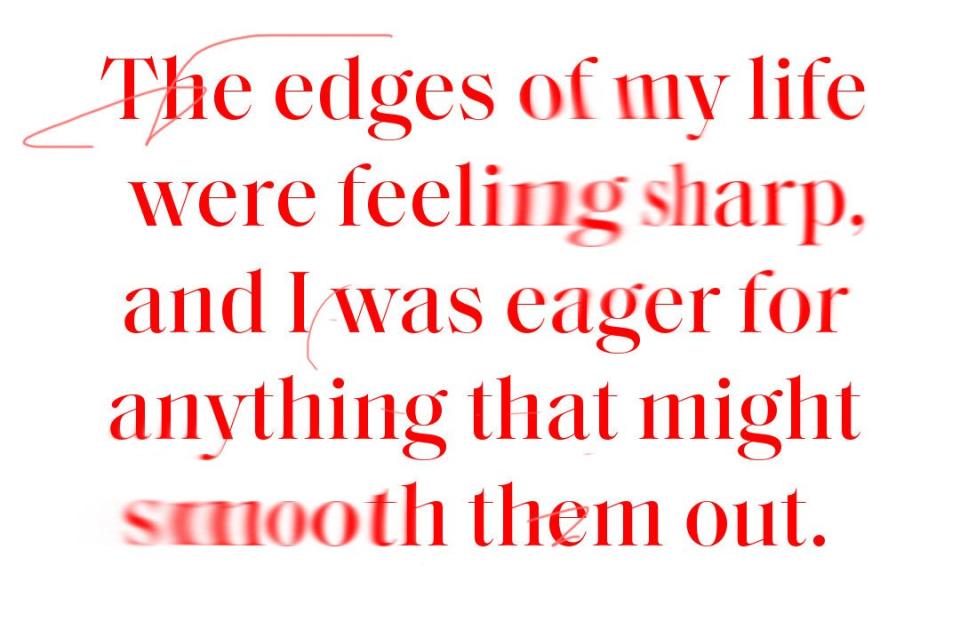
Yes! I felt like shouting. Charge my card over and over until I’m thin enough, hairless enough, eating vegetables in the right quantities, watching the right shows, and never having to think about any of it! I could lounge from the comfort of my Plumas Living Room Package ($166 a month). I could shape my butt from the seat of a Peloton ($58), then rent a pair of butt-hugging pants from Nuuly ($88). I’d look forward to renting a dress from Rent the Runway for a summer wedding ($89) to which I could drive in a Zipcar ($7). If I were in the mood to relax, I could sit down with my Kindle Unlimited ($9.99), Netflix ($8.99), Hulu ($5.99), HBO Now ($14.99), Apple TV+ ($4.99), Disney+ ($6.99), or YouTube TV (a hefty $49.99) and light a eucalyptus-scented candle from a Vellabox monthly candle subscription ($10) to set the mood. I could crack open a bottle of wine preselected by the people who really know me at Winc ($39 a month plus shipping). Then, and only then, could I get down to the real business of my life.
Direct-to-consumer programs have been around since at least the 1700s, when milk started arriving on American doorsteps without a trip to the barn, but we’re currently living in a golden age of subscriptions. In the first half of the 2010s, the amount spent on them went from $57 million to $2.6 billion, according to a McKinsey report. They’re the revenue stream of the future, say all the experts in this kind of thing, arguably the chief of them being Tien Tzuo, author of Subscribed: Why the Subscription Model Will Be Your Company’s Future—and What to Do About It. For Tzuo, the sky is really the limit on what you can subscribe to, a position he articulated in an account of perhaps the most horrifying-sounding dinner party of the past century:
“My colleagues and I, often over dinner and wine, would challenge each other to come up with businesses that couldn’t be turned into a subscription model,” he explained to Fast Company. “We tossed out ideas like guitars, cement.” According to Tzuo, the product itself is not what matters; it’s the customer’s desire. “Using cement as an example,” he continued, “you realize that flooring is the actual need. There’s a whole revolution of industrial carpets now. There’s a service contract, you simply pay some monthly fee plus overages, usage, etc. So you can actually subscribe to a floor.”
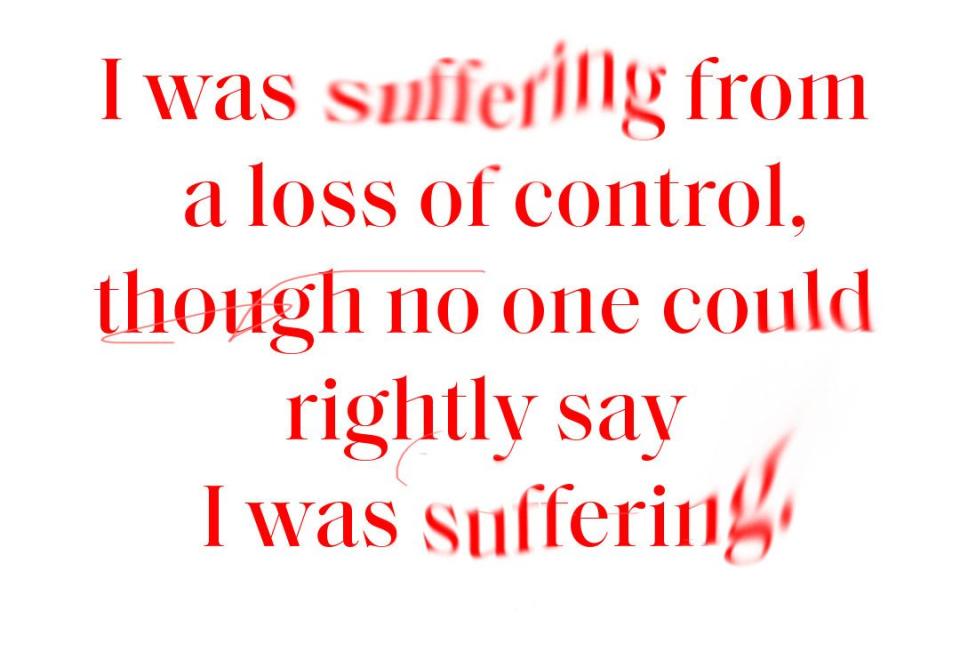
Why is life on the subscription model so appealing? Any one of a thousand marketing presentations saved to a thousand Dropbox accounts ($16.58 a month for the premium plan) could tell you the answer. People want time. They want ease. They don’t want to catch themselves on the seams of life. Why would anyone, as Forbes put it, “run to the store every three weeks for dog food or charcoal for your grill when you can subscribe to those items on Amazon?”
The dream of the subscription is that without having to use our brains for something as mundane as remembering to buy razor cartridges, we might do something better with our time. We might even become more optimized human beings—an economic fever dream that dates back to, I don’t know, the invention of the cotton gin. Probably earlier. In a memorable essay for The Guardian, Jia Tolentino summarized the economist William Stanley Jevons’s definition of optimization: “We all want to get the most out of what we have.” Saving not just time but effort is key to forward momentum in the industrial phantasmagoria that is, at this moment, blasting circus music into my ears. It’s a flattering proposition that implies I’m capable of something grand. Once we’ve saved all that money, all that time, all that hassle, out pops a gameshow host—his smile wider than a Smile-DirectClub member’s—to ask us, What will you do with all this time?
One answer is work. With fewer hours, minutes, or even seconds spent chopping onions and herbs for tonight’s dinner, I could be turning that extra time into money. But I had a different idea: What if, instead, I enjoyed myself? In her book How to Do Nothing: Resisting the Attention Economy, Jenny Odell makes a compelling case for leisure time—not leisure time as “side hustle” or “monetizable” or even something that will improve the self, but as recreation for no reason. This is a novel idea in 2020, even though it’s been around for more than a century. “As far back as 1886 . . . workers in the United States pushed for an eight-hour workday: ‘eight hours of work, eight hours of rest, and eight hours of what we will,’ ” Odell writes. The movement inspired a poster of people in canoes and a song about feeling the sunshine and smelling the flowers. When I read that, I thought: Dang, I never canoe! Maybe shaving off a sliver of my time at CVS could add to those eight what-I-will hours. And yet I spent those extra seconds sitting on my couch. I wasn’t doing anything except scrolling through my feeds, thinking about my subscriptions, contemplating how I could optimize my life further. I wasn’t even going to the store.

I considered whether the ease my subscriptions gave me counted as recreation. In an economy in which precarity is dressed up as a meaningful challenge, recreation becomes a slippery concept; that which is not painful might as well be pleasurable. At least at the end of a day of hustling, side-hustling, and ball-busting, when I collapse on my sofa under the strain of toiling under capitalism and pretending to love it, my vitamins will be there waiting for me. If it isn’t hard, it must be fun.
It’s not just recreation that these subscriptions want to replace, but friendship. The fact that so many subscription companies have “club” in the name is no accident: They want us to feel part of something. But these clubs don’t gather or share wisdom. They just come to you and say, “You’re one of us now.” When I take a Dollar Shave Club razor to my stubble in the shower, there’s no one there to compare my pleasure with. Is my shower optimized? Is it fun? Is it as easy as it possibly could be? I don’t know, because the truth is I’m not in a club, I’m just in the shower, and there’s no one else in here to see me cry.
Customized care is a big part of all this. You get exactly what you need exactly when you want it. Dollar Shave Club (“We Deliver Everything Now”) implores me, on its home page, to “tell us how you get ready. This will help us customize a box just for you.” How nice. Just for me. But it invites an anxiety that I hope no one can hear over Spotify ($9.99 a month for Premium) booming in my living room: What if I’m not getting ready right? What if there are inefficiencies? What if I’m not right?
None of this bothered me much until I detected a blip in the system. My life started to take on a formless quality, overly smooth, frictionless. It began to feel like my life was disaggregated, as if I’d uploaded my needs to the cloud. My apartment no longer held all the objects I needed for daily life. At the same time, I was spending too much time indoors with my soaps. What I owned started to feel too slippery to wrap my mind around without it escaping. My world was disarticulating. I felt uncontained; I could no longer look at the objects in my apartment and know where what I own ended.
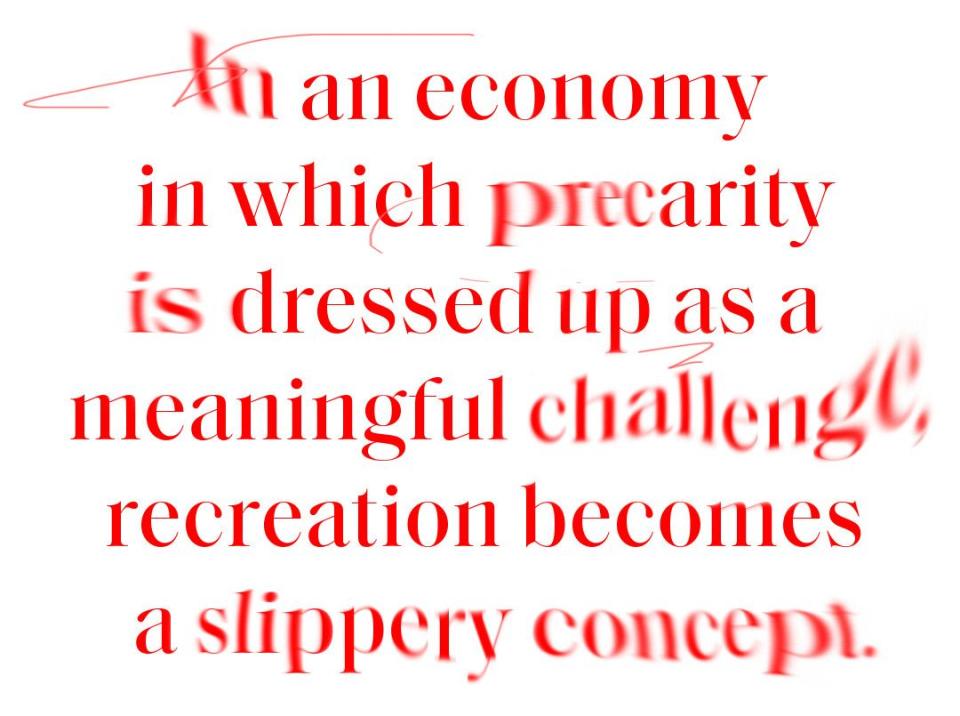
When you’re oversubscribed, your belongings are theoretical. In a few months, I’d think, I’ll own a new beanie, I’ll have another jar of vitamins, a new toothbrush. Shampoo arrived without my having to consult the used bottle to figure out how full it was, and I hardly had to think. I was starting to miss the boring day-to-day-ness of being alive. I was floating in a logistical clean room. Plus, although I’m a pretty careful spender, by and large, I’d started to lose track of who had my credit-card number and what password I’d need to rustle up to change it. Surely I could subscribe to some kind of password manager for a reasonable $2.99 a month or so, but I barely had the energy left to look. I moved to a new apartment and spent far longer on the phone with a customer-service robot at the mail-order pharmacy trying to update my “profile” with the new address to refill my prescription than I would have stopping by the place where I once watched a teenager shoplift ChapStick. My vitamins got lost in the mail. I was suffering from a loss of control, though no one could rightly say I was suffering.
The obvious answer to my problem, should one even be forgiving enough to call it that, was to unsubscribe from everything making my life too easy. But unsubscribing turned out to be just slightly harder than I’d anticipated. Subscriptions lend an accidental permanence to everything. Good luck moving if you have to untangle your subscriptions from one another. Quit whenever you want, they told me. No hassle. But I found myself in a warren of passwords and security questions, some linked to defunct email addresses, memories of my earlier, less optimized self.
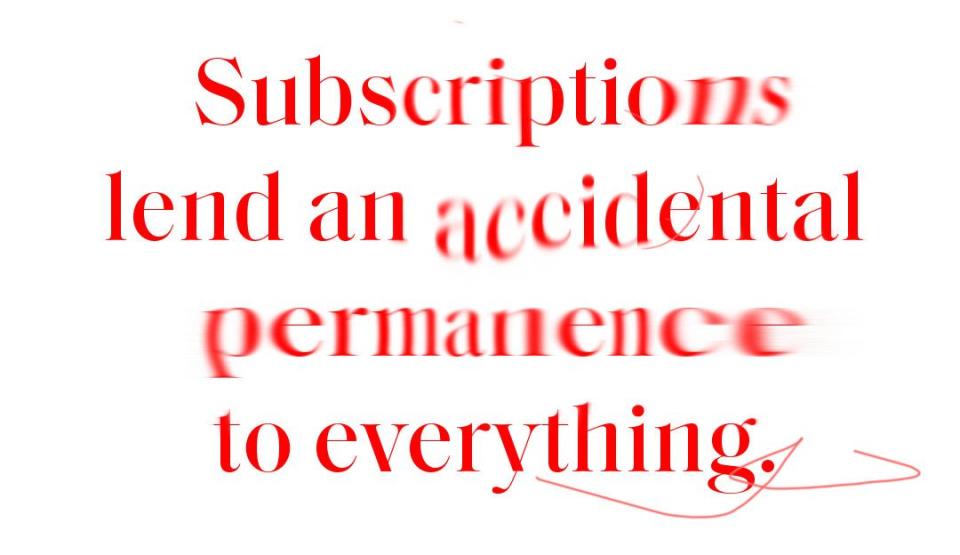
It turned out I wasn’t the only one stuck in a subscription feedback loop. Gary Rhoades, the deputy city attorney in Santa Monica, is part of the intimidating-sounding California Auto-Renewal Task Force, which is concerned with “explicit consent for renewals,” something that’s hard to give if you’re buying soap on your smartphone when the font size is tiny. In 2019, CART brought a case against the significantly less intimidating-sounding Guthy-Renker, the El Segundo–based direct-marketing company behind my old pal Proactiv, “after years of that anxiety that consumers have, and consumers reporting from all over that they had been charged for things that they didn’t think they had purchased,” Rhoades told me. The complaint was that Guthy-Renker didn’t make it clear enough to its customers that the charges were going to be recurring, leading to surprise payments. In the end, the company was forced to pay $1.2 million in penalties and a whopping $7.3 million back to customers who, I’d imagine, had been forced to move into increasingly large apartments to contain their steadily accumulating bottles of unused revitalizing toner.
Rhoades and his colleagues are noble public servants, devoted to rooting out “unlawful business practices,” and I am grateful to all of them. But as we talked, he struggled to answer a question I unfairly put in his hands: What if these business practices aren’t unlawful so much as annoyingly convincing? What do I do if I’ve been tricked into thinking I could shave off a few minutes here, a few there, for the slim price of my sanity? We know what to do for the poor saps stuck with Proactiv, but what about those of us with a deeper illness than acne: those of us who invited all this into our lives, saying, Yeah, save me from the normal coarseness of being alive? Those of us who, given the right branding, the right payment structure, might have subscribed to a floor?
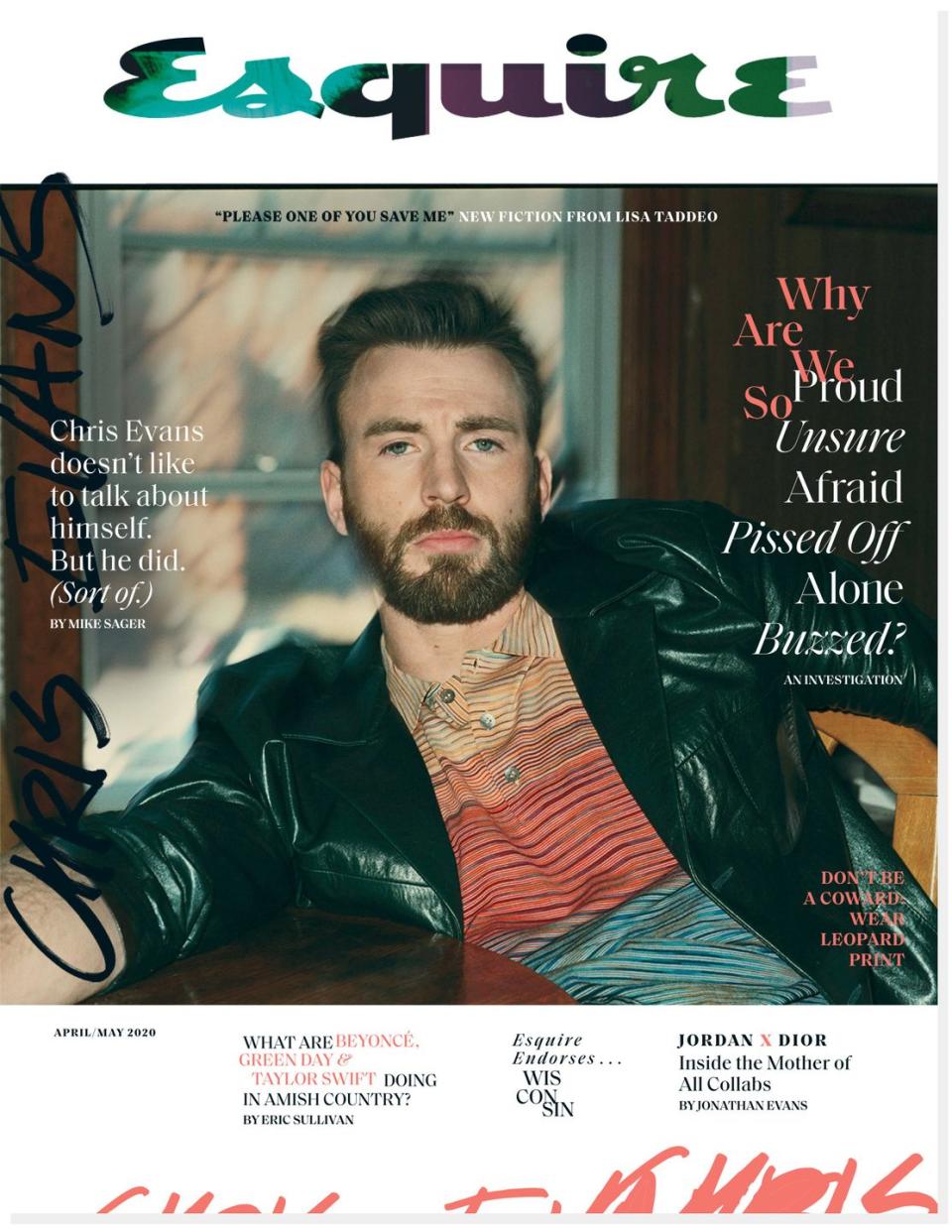
This article appears in the April/May issue of Esquire. Subscribe
I didn’t want to become that—compelled not just into the subscriptions I actually enjoyed (Netflix, for example, I could not bring myself to abandon, nor my bimonthly delivery of eyebrow “pomade”) but also into a life where I could self-quarantine without ever actually intending to. I’d have to go back to buying shampoo when the bottle got low. I’d have to remember that I was running out, then hope they had “my” kind at the not-at-all-curated drugstore near my office, knowing full well it wouldn’t even be perfectly formulated for my (medium-width) part, then lug it home. I’d have to support the local pet store, run by a wonderful woman with an eye patch who once told me mournfully that the makers of my dog’s favorite bison treat had “a lot of bad blood” with the makers of her favorite food. In other words, I’d have to leave my couch.
Once I got past the logistics, unsubscribing felt pretty good. The feeling of arriving home and realizing that I’d forgotten to buy shampoo returned, and it had a texture I didn’t mind. Like eating a sandwich after months of yogurt. Everyday pains, it surprised me to learn, added something to my life. Perhaps I was never a great candidate for subscription life anyway. Aversion to wasted time, I have long suspected, is something of a brag, the equivalent of saying, “I’m bad at vacation.” Canon office thinking goes that the “worst” kind of meeting is one where you don’t really need to be there. But those are my favorite! All you have to do in that situation is just sit there and act like you’re in a meeting. It’s a small moment during the day when merely bringing my body to a room is enough.
I began bringing my body into more rooms I didn’t strictly need to be in when I unsubscribed: pharmacies, post offices, the line at the MetroCard machine, all of them quotidian, none of them optimal. Choosing among face washes every time one ran out meant I could spend some time not being inventive, not being productive or ingenious or, yes, proactive. This brought me unexpected joy. Wasting a little time where I didn’t necessarily need to be was an affirmation: Just being here was enough.
You Might Also Like

